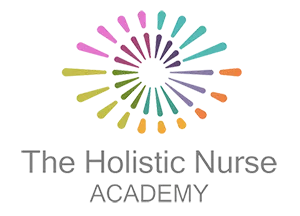Courses for Nurses & Health Care Providers
Frequently Asked Questions
FAQ's About Holistic Nursing
What is holistic nursing?
Holistic nursing is a practice that emphasizes treating patients as whole individuals—mind, body, emotion and spirit. It integrates conventional nursing care with complementary and alternative therapies to promote healing and wellness.
What distinguishes holistic nursing from traditional nursing?
Holistic nursing goes beyond addressing physical symptoms; it encompasses a broader perspective, considering emotional, social, and spiritual aspects of patient care. It often includes therapies like massage, acupuncture, acupressure, mindfulness,and other complementary alternative modalities (CAM).
How does holistic nursing benefit patients?
By addressing all facets of a patient's well-being, holistic nursing aims for comprehensive healing and improved quality of life. It can lead to reduced stress, enhanced coping mechanisms, and better overall health outcomes.
What are some common holistic nursing interventions?
Holistic nursing interventions may include aromatherapy, guided imagery, herbal remedies, meditation, therapeutic touch, and nutritional assessments. These approaches aim to support the body's natural healing abilities.
Is holistic nursing evidence-based?
Yes, holistic nursing integrates evidence-based practices from both conventional and alternative medicine. Nurses employ therapies that have shown efficacy in promoting health and healing.
How can nurses integrate holistic nursing into their practice?
Nurses can integrate holistic nursing by undergoing specialized training in complementary therapies, developing communication skills to understand patient preferences, and collaborating with interdisciplinary teams to create holistic care plans. The Holistic Nurse Academy was developed specifically to educate nurses on how to implement holistic modalities into their current practice.
What role does holistic nursing play in patient-centered care?
Holistic nursing aligns closely with patient-centered care by prioritizing individualized treatment plans that consider patients' physical, emotional, and spiritual needs. It fosters a partnership between nurses and patients in the healing process.
Are there certifications or specialized education for holistic nursing?
Yes, there are various certifications and educational programs available in holistic nursing. These programs provide in-depth knowledge of complementary therapies and their integration into nursing practice. There is a national board certification process to become a holistic nurse. The Holistic Nurse Academy has the resources to help you along to the path of this certification.
How can nurses balance traditional medical care with holistic approaches?
A holistic nurse by definition is an “option giver.” Finding balance involves understanding when and how to integrate holistic practices while respecting patients' preferences and conventional treatments. Effective communication and collaboration within healthcare teams are crucial.
Where can nurses find resources or organizations related to holistic nursing?
In addition to The Holistic Nurse Academy, there are several reputable organizations, such as the American Holistic Nurses Association (AHNA) and the International Society of Nurses in Cancer Care (ISNCC), that offer resources, conferences, and networking opportunities for holistic nursing practitioners.
Still Have Questions?
Feel free give us a call at (385)-644-9332.

Empowering healthcare professionals with a transformative approach to patient care. We are dedicated to providing empowering healthcare professionals with a transformative approach to patient care. We provide comprehensive training in holistic nursing, focusing on the integration of mind, body, emotion and spirit
Get in Touch
Phone
(385) 644-9332
